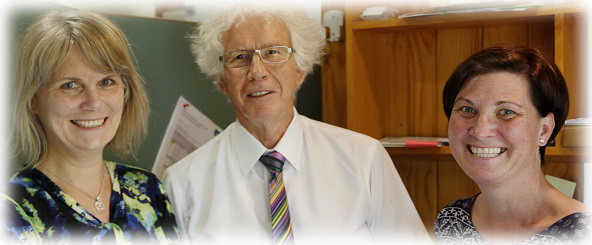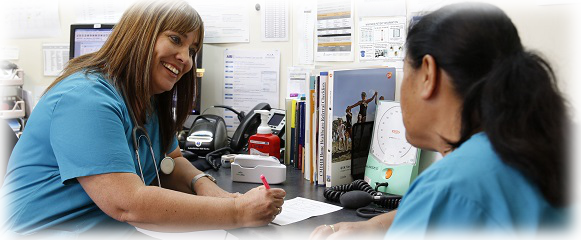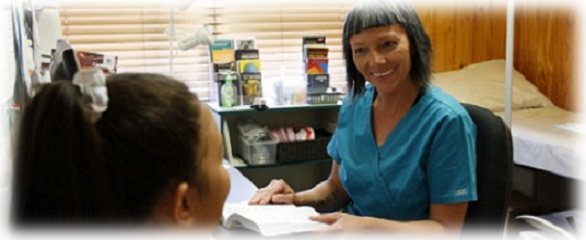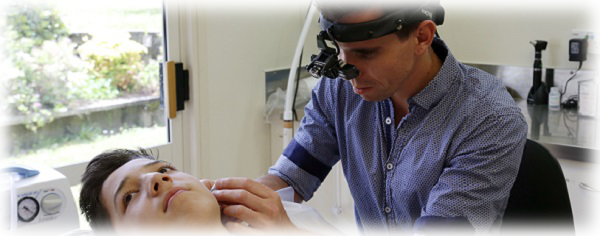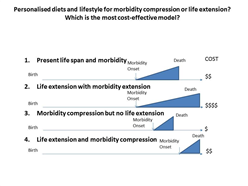July Newsletter
2013
Welcome again to the Millhouse Community and other readers,
In this newsletter I highlight current events at the Millhouse Integrative Medical Centre and present a brief discussion on anti-ageing strategies.
E-appointments
Have you used our easy and convenient on-line system for booking an appointment? Many patients have remarked how simple it is to make an e-booking, and save time and the hassle of phoning reception for a normal appointment. At this stage we are unable to offer nurse appointments or extended bookings for minor surgery and the CarePlus/CCM consultations
There have been difficulties when a mobile phone number is different from the one held in the practice computer record; this is one reason we frequently ask to check the computer details we have on file. If you have tried booking a number of times and failed, please tell us and we will endeavour to facilitate your access to the e-appointments.
For those who haven't used e-appointments, click ebooking (top and bottom) at www.millhousemedical.co.nz and you will be taken to the ConnectMed host site where you can select your doctor and an appointment time. On your first visit you need to register and select a password before proceeding further. When booking an appointment for your child use your name and inform reception of the change on arrival. After a booking has been made a TEXT message will be sent confirming the time and date of your appointment.
Flu Vaccination
If you are over 65 years or have a chronic illness (heart disease, asthma, kidney disease and diabetes) remember that you can get a FREE flu vaccination; they are still available by making an appointment with the Practice Nurse.
>>>Learn more about this...
Triage Nurse
With Doctor Alet joining us we have increased our nurse coverage. Each day have a third practice nurse dedicated to triaging critical problems, as well as providing additional phone support which may save a doctor's visit. The triage nurse may arrange a time for you to visit Millhouse to discuss your urgent concern and facilitate treatment advice from your family doctor.
Each week we review problems that have occurred and would appreciate feedback on how we can improve this service to facilitate effective urgent medical care when your doctor is busy.
>>>Learn more about this...
Walk-Ins
We have had an increasing number of patients 'walking in' and asking for medical treatment. As a general rule, medical services are by appointment only. However, if you are suffering from a medical emergency, the triage nurse will prioritise your need and arrange for you to see your doctor, or another if your own is unavailable. If your problem is less urgent there may be a wait while scheduled patients are seen, If your query is for a non-urgent issue (e.g. ear syringing), the nurse may ask you to make an appointment at a time of convenience.
Our priority is that all patients are seen by their doctor within 10-15 min of their appointment time, unless an extenuating situation, like a medical emergency, occurs.
Leaving messages regarding investigation
If you have non–urgent queries regarding your blood results, please consider leaving a 'nurse message' rather than waiting on the phone. We will contact you as soon as is practical, on the same day.
>>>Learn more about this...
Pre-vaccination checks
At present our doctors provide free pre-vaccination examination for all infant immunisations. We plan to continue with doctor checks at the six-week vaccination, but for all others, it will be our skilled practice nurses who evaluate your baby prior to giving an injection. If there are concerns, the nurse will ask your doctor to see your child.
>>>Learn more about this...
Doctor news
Congratulations to Doctor Stephanie and her husband who are expecting their first child in October. The practice will be arranging medical cover for Dr Stephanie when she takes maternity leave, until her return sometime in the New Year.
Dr Ric will be away on vacation during July and August.
Nurse news
We are delighted to announce that Judy Silvester has joined the nursing team. Judy brings a wealth of knowledge from many years of experience as a practice nurse and trained mentor.
In this issue...
Online Appointments
Triage Nurse
About Urgent Appointments
Infant Pre-Vaccination Checks
Doctors Away
This month Dr Ric writes about
Morbidity Compression, strategies to enhance long life
Dr Ric writes:
Morbidity Compression – active long life with less disease
I am amazed when I consider how a single cell created from mother's egg and father's sperm develops into 50 trillion cells that collaborate in a remarkably-organised community that provides the energy, mobility and security for humans to function. Throughout life we undergo 10,000 trillion cell divisions, but slowly lose the ability to photocopy each cell, and so become susceptible to disease. Our aim is to help you live long and actively and to delay chronic illness (morbidity) until the last decade of life; this is referred to as Morbidity Compression.
The New Zealand life expectancy table opposite shows that in the early 1900s we lived about 60 years but with improved health strategies (water & sewage treatment, better food, quality housing and healthcare), we now average 82.7 years for females and 78.8 years for males
.If the graph's projected life expectancy is correct, future generations may average only a few more years of living
The 'compression of morbidity' paradigm which was first postulated in 1980 has shown that if the period of chronic disease (morbidity) in later life can be reduced (compressed) there will be less disability and the elderly will live longer active lives (Table 2). If lifestyle changes are not used to delay the onset of illness, the medical technologies required to prolong life are very expensive (see 2, compare with 3 & 4). The preferred and least costly way to extend life is with personalised diets and proactive lifestyle changes throughout life (see 4).
In theMay 2013 newsletter I mentioned that 50% of elderly will develop Alzheimers Disease, a condition that is known to begin some twenty years earlier, and that adopting specific strategies (monitoring risk factors, adopting phytochemical rich diet, using protective nutrients, adopting vigorous exercise program, using medication to control disease – diabetes, blood pressure, vascular disease - and being social engaged) may delay and protect against the onset of this debilitating illness.
An aside Last week it was reported that research on brain tissue specimens with cinnamon's active ingredients, cinnamaldhye and epicatechin (also found in green tea), has shown the spice could inhibit the aggregation of tau protein and cause the separation of neurofibrillary tangles, the hallmark change observed in Alzheimers disease. Cinnamon is already known to improve glucose control and may also delay and protect against the onset of dementia, to which diabetics are more susceptible.:
Don't forget the influence of mother's womb on wellness & illness
It is often assumed that the growing foetus is protected while in the mother's womb environment, while Traditional Chinese Medicine has always maintained that prenatal influences have a significant, perhaps one third influence on wellness/illness in adult life. In Western science today, deficiencies in protein, iron, folic acid B12, zinc, vitamin A, vitamin D and iodine are recognised to have adverse effects on the growing unborn child
.Southampton University's Professor David Barker, who analysed birth archives and adult health records, has proposed in the 'Barker hypothesis' (or 'Foetal Programming Hypothesis') that critical events in pregnancy lead to maladaptation in the foetus, and may predispose to the development of blood pressure, obesity, diabetes and heart disease in later life
DNA our 'book of life' possibilities
I started by discussing how one cell multiples into a complex organism. Each cell has a control nucleus with 26 chromosomes, whose DNA strands contain a 'book of life' of possible programmes. The science of epigenetics looks at how these are modified by a changing cell environment to enhance, or adversely influence, human growth and living. Epigenetic changes turn DNA (and RNA) messages on and off, and cause gene destruction, up 10,000 times each day. Most cells are repaired but this action is less effective as we age.
Genetic damage can easily be studied in blood white cells by observing the accumulating rubbish in the cell nucleus (fragments of chromosome, micronuclei) and measuring changes in the telomere cap, which protects the end of each chromosome from damage. DNA damage accumulates with age but research, presented at the 2013 Science and Nutrition in Medicine Conference in Sydney, indicated that this can be slowed by using a low fat, non-refined plant-based diet of rich in vegetables & fruits, along with moderate exercise and relaxation strategies. The specific nutrients of natural vitamin E, vitamin D, folic acid, B12 and omega 3 oils are protective, whereas polyunsaturated fatty acids, processed meat and raised homocysteine levels increase chromosomal damage. Environmental chemical toxins, including smoking and excess alcohol are destructive to genes.
Excessive stress and overwork are harmful; so is being obese in childhood and later life. Children who have been sexually abused also suffer damage to the DNA. What is encouraging that an improved work-life balance, having renewing sleep, meditating and practicing mindfulness are all beneficial to your genes.
How are you doing with positive lifestyle strategies?
Life-Style Strategies
Know your risk
What diseases do your parents and relative have?
Be Proactive
Monitor blood pressure
Check blood cholesterol, hba1c (diabetes), B12 & folate, iron, PSA (males), cervical smear & mammogram (females)
Avoid toxic influences
Smoking, excess alcohol, toxic chemicals
Eat healthy food and use spices
Adopt the Mediterranean Diet with no/low refined carbohydrates
Lots of spices, garlic, cinnamon, turmeric, ginger etc
Keep ideal weight
Eat less, don't get overweight
Exercise
Some is better than none, vigorous interval training is best
Enjoy sunlight Vitamin D
Spend time in the sun or supplement
Live at peace
Sleep soundly, meditate, use prayer, mindfulness, be happy
Don't live in abusive relationships
Give
Do something for others
Yours in good health
Dr Richard J Coleman
www.millhousemedical.co.nz



